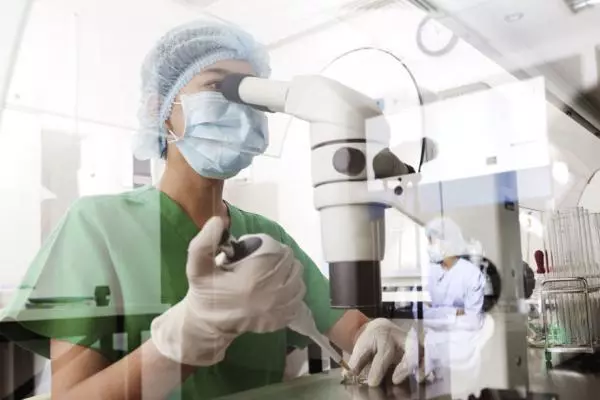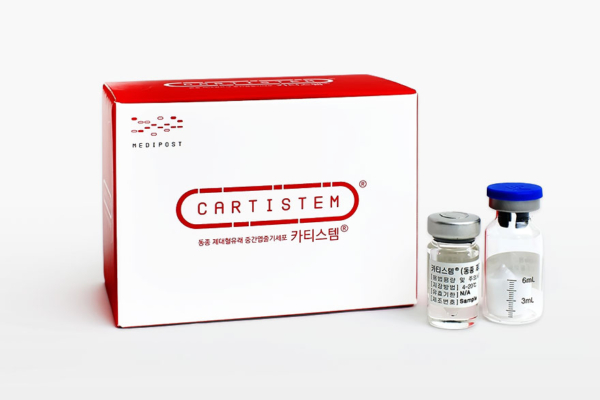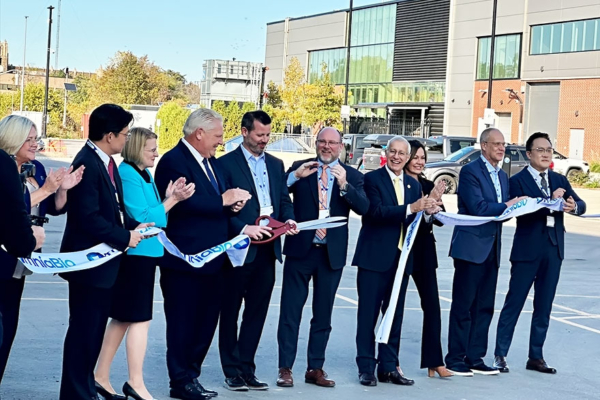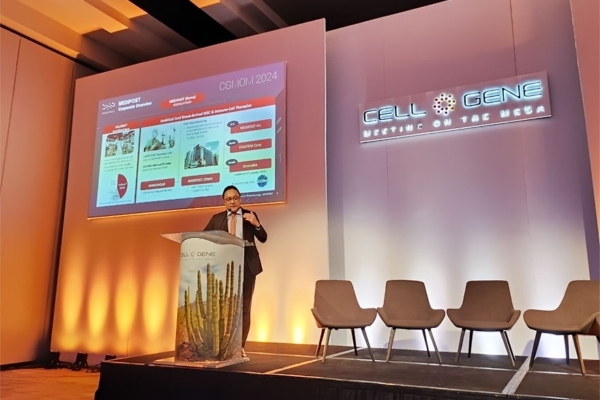‘Korea should ramp up basic research to keep stem cell leadership’
The technological prowess of Samsung Electronics and other Seoul-based IT companies has played a crucial role in lifting Korea’s international profile.
Amid intensifying challenges, however, the country is desperate to nurture another industry to keep up the upward trend.
Opinions vary when it comes to the next big thing. Some argue that the automobile industry, led by Hyundai Motor, will keep up the trend, while others insist that its fate hinges on “soft power,”referring to the Korean wave, or “hallyu.”
It still remains to be seen what will serve as the next growth engine of Asia’s fourth largest economy and grow with full state support. Yet it’s clear that stem cell therapy industry is emerging as a strong contender.
Three out of five mass-produced stem cell-based drugs for commercial use in the world were developed in Korea. The other two were created in Canada and Australia.
MEDIPOST is a major contributor to the achievement.The stem cell drug maker in Seoul won recognition by developing one of the three drugs in 2012, branded CARTISTEM®. The drug treats knee cartilage defects caused by degeneration or repeated trauma.
The pioneering products were recently exported to Hong Kong and are now awaiting sales endorsement in the United States, Canada, Australia and New Zealand.
In its latest achievement last week, a team of the firm’s researchers, headed by Dr. Jeon Hong-bae, revealed a mechanism of how stem cell works in regenerating of damaged cartilage. The outcome was published in “Stem Cell,” the most recognized journal in the field.
MEDIPOST CEO Yang, Yoon Sun said the global recognition of Korea’s stem cell technology is “noticeably” high. She added that it was possible thanks to a combination of enthusiastic scientists, reliable investors and the government’s cooperation.
But she warned that the roaring leadership will be short-lived unless the country increases spending on basic studies and researchers.
“The global recognition of Korea’s stem cell technology is higher than ever. Major biotechnology companies overseas always keep their eyes on what we are doing, seeking an opportunity to make a joint project,” Yang said in a recent interview with The Korea Times at her office in Seocho-dong, southern Seoul.
“But it’s questionable how long the leadership will stay undamaged. We should increase investment in basic studies and researches or the leadership will perish in the near future.”
State spending on basic stem cell studies and researches last year was estimated at 100.4 billion won ($90.1 million). The figure doubled when spending by domestic bioengineering companies was added, according to market analysts.
They said the combined spending on domestic stem cell researches last year was merely one-hundredth of that of the U.S.
Selection & concentration
The CEO said her company’s investment into basic research is still humble, but it was able to develop the pioneering drug because of the “selection and concentration”strategy.
“It’s impossible to do everything (from research to development) on a limited budget. So we have focused on what we can do with it,”Yang said. “Once we set up a goal, we pour in our all human and financial resources to make it. That’s how we have been able to make a relatively good achievement despite a shortfall in basic research and limited budget.”
MEDIPOST is now developing new drugs for pulmonary fibrosis and Alzheimer’s disease. It’s hard to predict the exact time of their availability. But Yang cautiously said the drug for pulmonary fibrosis will be available from 2017, while the development of the other for Alzheimer’s disease will take more time.
“Premature babies are expected to become the primary group of beneficiaries of the drug (for pulmonary fibrosis),”she said. “They mostly breathe in an incubator relying on a respirator. The device is essential to save them, but those who received the treatment in the first days in life normally find that their lung functions decline as they get older. The drug will give them relief from the trouble.”
The CEO said stem cell therapy will bring about a radical change in medical treatment, adding all “non self-regenerating”organs or parts of the body such as joints, heart, lungs, liver, spinal cord and even the brain will be subject to the method.
“It’s hard to say stem cell therapy is a cure-all. There is certainly a limit in treatment,”she said.” But many incurable diseases under existing medical technology will become curable with stem cell therapy.”
The global markets for stem cell products are forecast to reach $6.6 billion by 2016, up from $4.3 billion in 2012, according to BCC Research, a publisher of technology market research reports.
The American market is expected to reach nearly $2.3 billion by 2016, while the European market will grow to $1.5 billion during the same period, it said.
“We still have a long way to go. We’ve just taken the first step,” she said. “There are many things to be improved with the existing stem cell drugs. We should work hard to make them more powerful and convenient to use. It’s extremely tough and time-consuming to do so, but we should do it. Why? It’s worth it.”
Who is Yang, Yoon Sun?
Born in 1964, Yang graduated from Seoul National University’s medical school. Prior to establishing MEDIPOST in June 2000, she practiced at Seoul National University Hospital and Samsung Medical Center.
As a rare CEO in the bioengineering industry, she has assumed various decision-making or advisory positions for state and private organizations bodies, including the Ministry of Education, Science and Technology, the National Commission for the Study of Bioethical Issues, the Korean Society for Stem Cell Research and the Korea Biomedicine Industry Association.
She currently holds a professorship at Korea University and Sogang University.
By Park Si-soo





